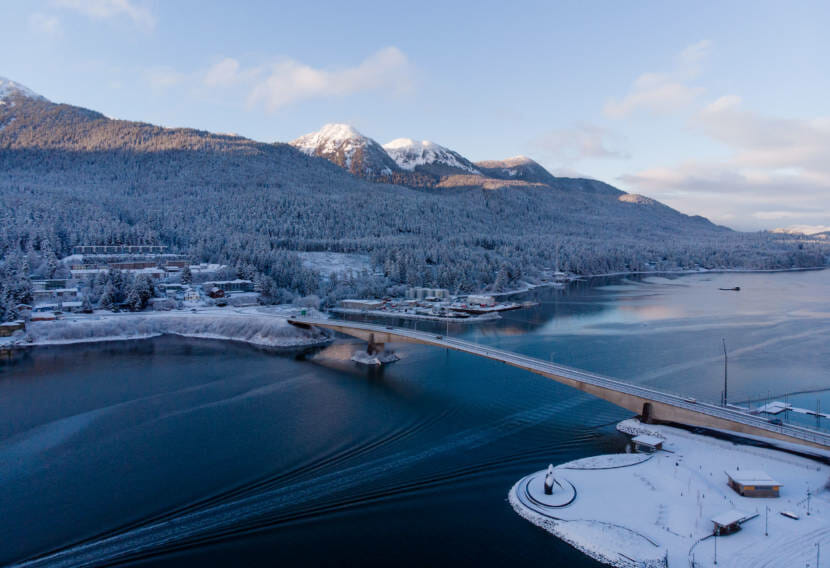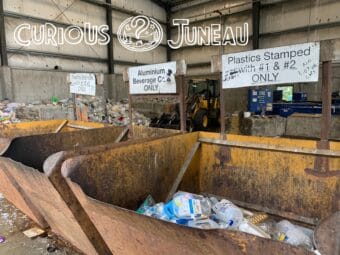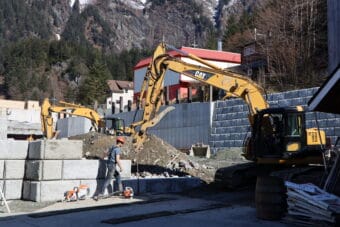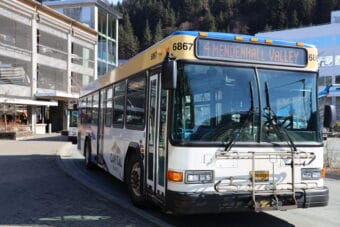
Juneau’s Systemic Racism Review Committee has flagged legislation for the first time since its creation in 2020.
In early January, the committee looked over a plan from a local developer, Travis Arndt, who wants a piece of property on North Douglas to be rezoned. Right now it’s residential, and he wants it zoned commercial so he can build boat storage and other buildings on the property.
To review legislation, committee members ask a list of questions about whether the law would perpetuate systemic racism. Questions like: What could be the impact of this legislation and who will be affected by it? And does this benefit one group of people at the expense of another?
Committee vice-chair Grace Lee had some concerns with the legislation because of Arndt’s plans to build boat storage.
“I realize this is Alaska, and a lot more people have boats, but boat storage affects a group of people who can afford boats and then also afford to store them,” Lee said. “And so I think that just asking that question, does this perpetuate systemic racism? Yes, it takes away the possibility of housing, and gives it to people who have boats.”
From Lee’s perspective, the proposal benefits people with more income to the detriment of community members struggling to find affordable housing. And that has the potential to perpetuate systemic racism because people of color are more likely to struggle to find affordable housing in Juneau.
This wasn’t the first time someone said they had issues with how this specific rezone would affect housing in Juneau. During an August Assembly meeting, Mayor Beth Weldon said that one of the Assembly’s goals is to increase housing in the community, and she was concerned about taking 15 acres of land from residential to commercial.
Assembly member Wade Bryson thought changing the zone to commercial would give more opportunity for housing because it would allow 50 units per acre — the maximum density for housing.
“I’m just, I’m super confused on how we got it wrong,” Bryson said, “Because it sounded like I think the same thing that you guys are thinking. More housing is good, or higher density is better right?”
In his public testimony on this project, Arndt said he didn’t plan to increase residential density, but wanted to build buildings with and without housing.
Arndt didn’t respond to phone calls or emails seeking his perspective on the committee flagging his plans.
Lisa Worl chairs the Systemic Racism Review Committee. She said its members are not comfortable with the rezone because it opens up the possibility for many kinds of development.
A rezone cannot be conditional to a certain project, so while more high-density housing is theoretically possible, it’s not a guarantee.
“When you accept it, you accept all the possibilities,” Worl said. “When you are selling it to any particular person and it’s already been rezoned, they may say one thing, but then it’s still a possibility, they may change their mind.”
Worl said the committee also had concerns about the lack of input people who live near the property. Only the developer and one other person testified. Both are on the city’s planning commission.
The committee recommended that the Assembly get more public comment from residents in the area. City leaders listened, and now there will be another public hearing at the next Assembly meeting on Feb. 7.
The process of pointing out how a project can contribute to inequity in Juneau is new for everyone involved. But advocates of the systemic racism review process say these are important steps toward creating a more equitable community.
When the committee was created in the summer of 2020, it was amid a nationwide reckoning on racism after police killed George Floyd.
The Juneau Assembly listened to residents about their experiences of racism in the community. Afterward, former Assembly member Rob Edwardson suggested creating a committee to look for systemic racism.
“When I was on the Assembly, there were a lot of ordinances that were needlessly rushed,” Edwardson said. “There was absolutely no urgency to push them how fast that they were being pushed.”
He said when legislation moves too fast, there’s greater likelihood the legislation will further systemic racism.
This is the first time the committee has flagged a piece of legislation since it started reviewing legislation last April.
Afterwards, the Juneau Assembly held a meeting with members of the committee to hear about why they flagged the rezoning.
Edwardson said this is exactly what he envisioned the committee doing with ordinances. He hopes current and future Assembly members will get in the habit of thinking about systemic racism when they’re looking at legislation.
“What I think what might happen is, there might be a lot of reports that come out that report the same thing as this most recent report,” Edwardson said. “But then that’ll die out over time as people become more accustomed to looking at equity and inclusion in ordinances.”
Worl said the scope of the committee is limited — it only looks at potential laws that come before the full Assembly.
“Which I think is adequate, but it’s hard sometimes to look at ordinances, policy only by itself,” Worl said. “It’s pretty hard to tease out or not look at the impacts without looking at the implementation as well.”
Worl thinks the Systemic Racism Review Committee is a good start but that the Assembly may want to look at other ways to weed out systemic racism too.



